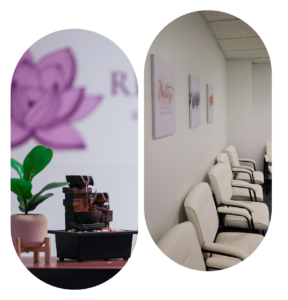Cocaine Rehab in Boston with Resilience Behavioral Health
 At Resilience Behavioral Health in Boston, we specialize in helping individuals reclaim their lives from the grip of cocaine addiction through tailored, evidence-based treatment. Cocaine use can quickly lead to physical dependence and a cycle of intense highs and devastating lows, affecting every part of a person’s life, from health to relationships to work stability. Our Boston-based rehab program offers a structured, supportive environment where individuals can begin their recovery journey with a team of dedicated professionals who understand the unique challenges of cocaine addiction.
At Resilience Behavioral Health in Boston, we specialize in helping individuals reclaim their lives from the grip of cocaine addiction through tailored, evidence-based treatment. Cocaine use can quickly lead to physical dependence and a cycle of intense highs and devastating lows, affecting every part of a person’s life, from health to relationships to work stability. Our Boston-based rehab program offers a structured, supportive environment where individuals can begin their recovery journey with a team of dedicated professionals who understand the unique challenges of cocaine addiction.
Resilience Behavioral Health’s approach to cocaine rehabilitation is grounded in comprehensive care that addresses both the physical and psychological aspects of addiction. Through therapies such as Cognitive Behavioral Therapy (CBT), group support, and holistic wellness practices, we empower individuals to build lasting coping skills and develop healthier ways of managing stress and cravings. From the initial stages of detox through ongoing therapy and aftercare, our program provides the tools and support necessary to build a life free from addiction, fostering long-term resilience and renewed hope for a brighter future.
The Cocaine Crisis in Boston
Boston, like many major cities, faces a persistent battle against drug addiction, with cocaine being a significant concern. The city’s dynamic social scene and economic disparities contribute to cocaine’s prevalence, impacting people across various demographics. According to recent data, Boston has seen fluctuations in cocaine use, influenced by factors such as the opioid crisis and socio-economic conditions. Thus, the availability of medical cocaine rehab in Boston programs is pivotal for the overall well-being of the community.
Statistics on Cocaine Abuse in MA
Cocaine abuse remains a significant concern in Massachusetts, impacting individuals and communities across the state. Recent data highlights a troubling increase in cocaine-related deaths and hospital admissions, particularly with the rising trend of cocaine being mixed with fentanyl, a potent synthetic opioid. In 2021, cocaine was involved in approximately 50% of opioid overdose deaths in Massachusetts, a statistic that points to the dangerous combination of cocaine and opioids in the region. This mixing of substances increases the risk of fatal overdose, especially among users who may unknowingly consume both drugs simultaneously.
Additionally, cocaine addiction affects a wide demographic, with rates of use highest among young adults aged 18-25. According to the Substance Abuse and Mental Health Services Administration (SAMHSA), an estimated 2.1% of Massachusetts residents reported using cocaine in the past year, surpassing the national average. This ongoing prevalence has led to increased demand for specialized cocaine rehabilitation programs in the state. Through targeted interventions, education, and accessible rehab services, Massachusetts aims to address the high rates of cocaine addiction and reduce its impact on local communities.
Why Professional Addiction Treatment For Cocaine Is Important
Professional addiction treatment for cocaine is essential because of the drug’s powerful addictive properties and the severe physical and psychological impact it has on users. Cocaine directly affects the brain’s dopamine system, creating intense, short-lived euphoria followed by significant crashes that often drive users to seek out the drug repeatedly, quickly leading to dependency. Over time, this cycle can alter the brain’s reward system, making it difficult for individuals to feel pleasure from everyday activities. Because of these changes, attempting to quit on one’s own is often incredibly challenging, leading many to relapse without proper support and treatment.
Professional treatment offers a structured and supportive environment with medical and therapeutic resources to address the multifaceted nature of cocaine addiction. Medical professionals can provide supervised detox, managing withdrawal symptoms safely and effectively. Additionally, treatment programs integrate evidence-based therapies, such as cognitive-behavioral therapy (CBT), to help individuals understand the underlying triggers of their addiction, learn coping strategies, and build resilience. Professional treatment not only supports individuals through detox and early recovery but also helps build the foundation for long-term sobriety, addressing both the physical and psychological aspects of cocaine addiction.
Signs & Symptoms of Cocaine Abuse
Recognizing the signs and symptoms of cocaine abuse is crucial for identifying when someone may need help. Cocaine has immediate and often visible effects, impacting both physical and behavioral aspects of a person’s life. Here are some key signs to look out for:
Physical Symptoms
- Dilated Pupils: Enlarged pupils are a common effect of cocaine use, even in well-lit environments.
- Nosebleeds or Runny Nose: Snorting cocaine can damage nasal passages, leading to frequent nosebleeds or a chronically runny nose.
- Weight Loss: Cocaine is a stimulant that can suppress appetite, causing rapid or noticeable weight loss.
- Increased Energy and Hyperactivity: Users may exhibit extreme bursts of energy, hyperactivity, or restlessness.
- Muscle Twitches: Shaking, tremors, or muscle twitches may develop due to cocaine’s impact on the nervous system.
Behavioral Symptoms
- Mood Swings and Agitation: Cocaine can lead to rapid mood changes, from euphoria to anger, irritability, or anxiety.
- Social Withdrawal: Individuals may isolate themselves, preferring time alone or with other users, often neglecting relationships and social obligations.
- Risky Behavior: Cocaine lowers inhibitions, leading to impulsive, high-risk activities, such as reckless driving or risky financial decisions.
- Paranoia and Hallucinations: With prolonged use, users may experience paranoia or auditory hallucinations, feeling overly suspicious or “on edge.”
Psychological Symptoms
- Obsessive Thinking: Users often become preoccupied with obtaining and using cocaine, neglecting other priorities or interests.
- Depression and Anxiety: Once the drug’s effects wear off, users may experience intense lows, including feelings of sadness, anxiety, or hopelessness.
- Inability to Stop Using: Despite knowing the harm cocaine is causing, individuals often struggle to quit, feeling powerless to control their use.
Recognizing these symptoms early can make a significant difference, allowing for timely intervention and access to the necessary support and treatment for cocaine abuse.
 An Overview of Resilience Behavioral Health’s Cocaine Rehab in Boston
An Overview of Resilience Behavioral Health’s Cocaine Rehab in Boston
Resilience Behavioral Health stands out among cocaine rehab in Boston facilities due to its comprehensive approach to treating cocaine addiction. With a mission centered on individualized care, the facility offers a combination of evidence-based treatments tailored to the exact needs of its clients.
Facility and Environment
Located in a peaceful setting that offers a reprieve from the hectic urban life, Resilience Behavioral Health provides a conducive environment for recovery. The facility boasts state-of-the-art amenities designed to enhance the rehabilitation experience while ensuring comfort and safety for its clients.
Treatment Approaches at Resilience Behavioral Health’s Massachusetts Cocaine Treatment Facility
Resilience Behavioral Health employs a variety of treatment methodologies at their cocaine rehab in Boston, blending traditional therapeutic approaches with innovative practices:
Cocaine Medical Detoxification in Boston
Detoxification is often the first critical step in the rehabilitation process. At Resilience, medically supervised cocaine detox in Boston ensures that patients undergo withdrawal safely, with professional support to manage symptoms effectively.
Individual and Group Therapy
Both individual and group therapy sessions are integral to the recovery process. These sessions help patients explore the underlying causes of their addiction, develop personal insights, and learn from the experiences of others battling similar challenges.
Cognitive Behavioral Therapy (CBT)
CBT is a cornerstone treatment at Resilience Behavioral Health. This form of psychotherapy helps patients recognize and restructure negative thought patterns and behaviors associated with cocaine use, enabling them to develop healthier coping strategies.
Holistic and Alternative Therapies
Understanding the importance of a well-rounded approach, Resilience also offers alternative therapies such as yoga, meditation, and art therapy. These practices support mental health, reduce stress, and foster a sense of community and healing.
Resilience Behavioral Health’s Aftercare & Family Support
Recovery is not a solitary journey. Resilience Behavioral Health emphasizes family involvement as a crucial component of the rehabilitation process. Family therapy sessions are provided to help rebuild trust, improve communication, and educate loved ones about addiction and recovery.
Additionally, a successful cocaine rehabilitation program in Boston extends beyond initial treatment, focusing on long-term recovery. Resilience Behavioral Health offers robust aftercare plans that include continued therapy, support groups, and resources to prevent relapse. This ongoing support is essential for maintaining sobriety and addressing any challenges that arise post-treatment.
Paying For Cocaine Rehab in Boston Through Insurance
Paying for cocaine rehab in Boston can be a more accessible process with the right insurance plan. Many health insurance policies cover various types of addiction treatment, including rehab programs for cocaine dependence. Understanding how to navigate insurance options and finding a rehab facility that accepts your plan can ease financial stress and enable you to focus on recovery.
Coverage Options Through Insurance
Most major insurance providers offer some level of coverage for addiction treatment, often including detox, outpatient programs, intensive outpatient programs (IOP), and residential treatment. Coverage varies depending on the specific insurance plan and provider, so it’s essential to verify benefits beforehand. Resilience Behavioral Health works closely with patients and their families to clarify coverage options, helping you understand which services are covered and any potential out-of-pocket expenses.
How Resilience Behavioral Health Assists with Insurance Navigation
At Resilience Behavioral Health, a dedicated team is available to help navigate the insurance process. They assist with benefit verification, claim submissions, and help patients explore additional options if full coverage isn’t available. They may also work with patients on payment plans or financial assistance options if needed. This support ensures that you’re not facing the financial aspects of rehab alone, allowing you to prioritize health and healing.
Begin Your Journey To Recovery Today Through Our Cocaine Rehab in Boston
Cocaine addiction remains a daunting challenge for many individuals in Boston, but with facilities like Resilience Behavioral Health, there is a path to long-term recovery. By offering comprehensive, evidence-based cocaine rehab in Boston, Resilience plays a pivotal role in helping individuals overcome addiction and rebuild fulfilling lives.
For those seeking more information or immediate assistance, Resilience Behavioral Health offers a 24/7 addiction treatment helpline. They stand ready to support anyone ready to take the courageous step towards recovery. If you or someone you know is struggling with addiction, reaching out to RBHs professional cocaine rehab in Boston facility is the first step towards health and freedom.

 An Overview of Resilience Behavioral Health’s Cocaine Rehab in Boston
An Overview of Resilience Behavioral Health’s Cocaine Rehab in Boston